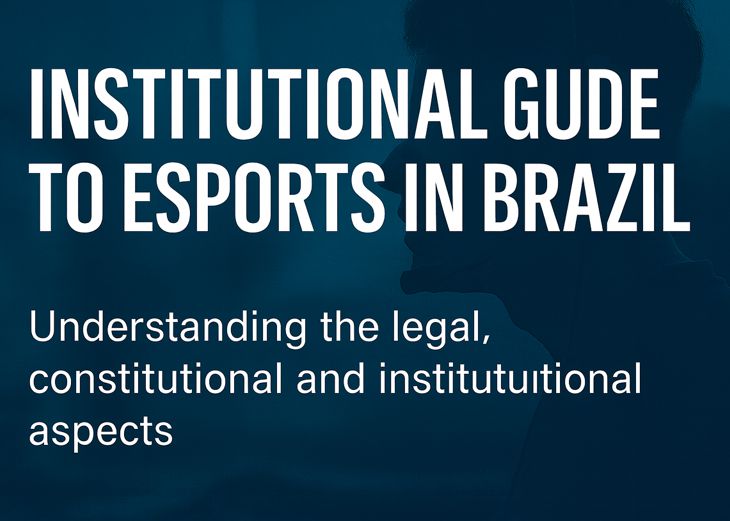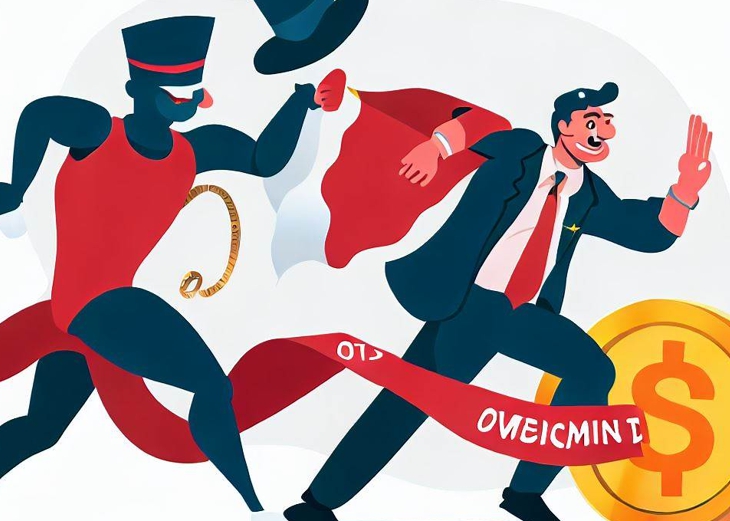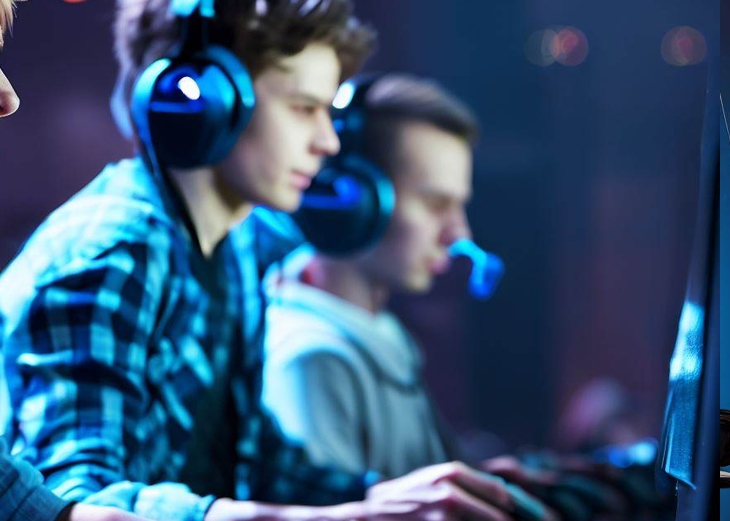Since 2009, I have used a term in lectures and debates I have been invited to participate in, which has become common in the sports field: the “International Pyramid System of Sport,”.
IN that system, there is one international entity, one continental, one national, and the regional and local levels. Parallel to this, there are consortia, unions, governments, and the Olympic movement. Exclusively and invariably, there is only one entity for each level of this pyramid. Below, and following this understanding.
- General Introduction
Sport, more than physical activity or competition, is a powerful tool for social transformation.
It acts as a vector for inclusion, discipline, education, health, citizenship building, and also offers opportunities for professionalization and income generation. In Brazil, this role of sport is recognized by the Constitution, by federal laws, and by the State itself through public policies, institutional structures, and resource transfers.
Esports, as a new multidisciplinary and digital sports expression, fit into this context with growing strength.
- The Constitutional Role of Sport
The Federal Constitution of 1988 establishes:
Art. 217 – "It is the duty of the State to promote formal and non-formal sports practices, as a right of each person."
This article, along with the principles in Article 6 (sport as a social right), determines that sport is not a privilege, but a universal right, and imposes on the federative entities — Union, States, Federal District, and Municipalities — the obligation to promote access to it.
This duty is independent of modality, of any link with the Olympic Movement, or of consolidated federative structure.
- Sport as Citizenship Training and Profession
3.1 Citizenship training
- Develops ethical values: respect, discipline, overcoming challenges, solidarity.
- Reduces school dropout, youth violence, and promotes physical and mental health.
- Promotes social and cultural inclusion in vulnerable communities.
3.2 Professional path
- Legal recognition of the professional athlete figure (Pelé Law, Art. 3).
- Direct careers: athlete, coach, referee, manager, physical trainer, physiologist, etc.
- Indirect careers: sports marketing, events, audiovisual production, technology, tourism, data analysis, etc.
- Who Is Responsible for the Promotion of Sport
4.1 Federal Government
4.2 Ministry of Sport / National Secretariat of Sport
The Ministry of Sport is the main federal public administration body responsible for planning, coordinating, and implementing national policies related to sport and physical activity, as provided for in the Federal Constitution and in complementary legislation, such as the General Sports Law (Law No. 14.597/2023).
Its actions must comply with the principles of equality, impersonality, legality, morality, and efficiency, and it is forbidden to engage in political-partisan interference or undue favoritism toward specific private entities.
Functions include:
- Formulating national public policies.
- Managing programs, transfers, and incentive laws.
- Representing Brazil in international treaties.
- Coordinating the National Sports System (SINESP).
- Establishing guidelines for educational, performance, participatory, and inclusion sports.
- Creating public programs based on the Constitution and current laws.
- Financing sports projects and encouraging the work of legitimate confederative entities.
- Promoting the training of athletes and sports professionals.
- Encouraging grassroots programs and social projects.
- Managing and supervising transfers of public funds, including those from the Sports Incentive Law and other budgetary sources.
4.2 Legal and constitutional limits
The Ministry of Sport has no legal authority to recognize or grant exclusivity to any national sports confederation. The freedom of association (Art. 5, XVIII of the Constitution) prevents the State from imposing a single entity as the administrator of a given modality, except when defined by objective, public, and impartial technical criteria in transparent processes provided for by law or specific regulations.
Therefore, its role is regulatory, promotional, and supervisory — not centralizing or interventionist — especially regarding the choice of representatives of sports categories in the private sector.
Doctrinal Citation – Celso Antônio Bandeira de Mello
"Freedom of association is a corollary of the Rule of Law and of private autonomy. The State cannot interfere in the creation, choice, organization, or functioning of associations, under penalty of serious offense to the Constitution."
— MELLO, Celso Antônio Bandeira de. Curso de Direito Administrativo. 32nd ed. São Paulo: Malheiros, 2015.
Jurisprudence – Supreme Federal Court (STF)
Topic: Freedom of association and prohibition of State interference
Excerpt:
"The Constitution guarantees freedom of association, prohibiting the State from interfering in the functioning of associations, especially in the choice of their leaders or in imposing a single representative entity."
— STF – ADI 3.128, Reporting Justice Cármen Lúcia, judged 06/05/2009, DJe 10/06/2009
4.3 States and Municipalities
The State and Municipal Secretariats of Sport form the decentralized entities of Brazil’s administrative structure, being responsible for the direct implementation of public sports policies within their respective territories, in alignment with the guidelines established by the Ministry of Sport and the General Sports Law (GSL).
They are fundamental pillars for bringing sport to every part of the country, especially in promoting educational, grassroots, participatory, and socially inclusive sports, as well as engaging with vulnerable populations.
4.4 Essential competencies of local Secretariats:
- Develop and implement state and municipal sports plans in line with the National Sports System;
- Establish partnerships with confederative entities, clubs, and social organizations;
- Create educational, social, and performance-oriented sports programs;
- Promote events and competitions at local and regional levels;
- Support and encourage projects that integrate digital and civic inclusion through esports;
- Maintain sports training centers, courts, arenas, and public spaces for regular physical activity.
4.5 Limits and opportunities
Like the Ministry of Sport, these Secretariats have no authority to grant institutional exclusivity to any sports confederation or entity. They may, however, form partnerships based on technical criteria, such as execution capacity, track record, and clear public purpose.
In the case of esports, these secretariats should encourage the democratization of practice, support the development of new talent, implement educational projects based on games, and integrate the sector into local youth, education, and cultural programs.
- The Role of Private Sports Entities (IOC, COB, and Confederations)
5.1 International Olympic Committee (IOC) and Brazilian Olympic Committee (COB)
The IOC and COB are private entities created solely to organize and promote the Olympic Games and their youth and winter versions.
They have no public function or legal authority over the national sports system. Their scope is limited to preparing delegations and coordinating confederations affiliated exclusively with the Olympic Movement.
Important: The COB is not a government body and cannot determine which sports entities in Brazil are legitimate outside the Olympic circuit.
- Private nature, governed by civil law, without constitutional public function;
- Aimed at preparing athletes and organizations for the Olympic Games;
- The COB represents the IOC in Brazil, acting only within the Olympic Movement;
- They have no legal authority to define what is or is not sport in Brazil, nor to officially represent the entirety of national sport.
5.2 Sports Confederations
According to the Brazilian Civil Code, especially Articles 53 and 54, private associations are formed by the union of people for non-economic purposes. Their bylaws must define name, purpose, headquarters, admission and exclusion criteria, members’ rights and duties, funding sources, and governance rules. Thus, sports confederations and federations — including esports ones — must comply with these requirements to ensure legitimacy and legal compliance.
- Non-profit private associations recognized for their history, governance, representativeness, and proven activity;
- There is no legal figure of a “single official confederation” imposed by the State, except through a legally instituted public, technical process;
- In esports, confederations like CBDEL, which operate in a multidisciplinary, democratic way with real federative presence, should be evaluated based on objective criteria — not political preference, international affiliation, or media support.
Furthermore, esports, as recognized sports manifestations, may adopt and adapt the principles and procedures of the Brazilian Code of Sports Justice (CBJD), which sets disciplinary, organizational, and conflict resolution rules in sports. This strengthens the internal regulatory and disciplinary capacity of entities, giving them greater legal and institutional security.
- Also private and autonomous, but must be certified to access public funds and officially represent modalities;
- Serve normative, technical, and organizational functions in their respective modalities;
- Being recognized by an international federation does not automatically grant legal legitimacy or priority for public funding in Brazil.
The Superior Court of Justice (STJ) confirms this view: mere affiliation or recognition by an international entity does not, by itself, confer national representational legitimacy. Compliance with Brazilian legislation and certification by competent authorities is essential.
- The New General Sports Law (Law No. 14.597/2023)
Art. 3, §3 of the GSL: "The recognition of a sports modality shall observe objective criteria of habitual practice, minimum organization, and national institutional presence."
6.1 Advances of the Law
- Consolidates all previous legal frameworks.
- Establishes clear rules for governance, integrity, transparency, and compliance.
- Creates the new National Sports System (SINESP).
- States that the recognition of modalities must be technical, objective, and based on functional criteria — not political convenience or monopolies.
6.2 Comparison with the Constitution
|
Criterion |
Federal Constitution |
General Sports Law |
|
Right to sport |
Guaranteed as a social right (Art. 6 and 217) |
Reaffirmed, with detailed provisions |
|
Sports entities |
Autonomous |
Must meet governance requirements for certification |
|
Modalities |
No definition of who recognizes them |
Recognition is technical, based on objective criteria |
|
Political interference |
Prohibited |
Uses technical criteria as basis for promotion |
- The National Congress and Its Role
7.1 Duties
- Legislate on public sports policy.
- Create and update laws such as the General Sports Law, Sports Incentive Law, Pelé Law, etc.
- Oversee the use of public funds (via the Federal Court of Accounts and standing committees).
- Hold public hearings and support sports projects through parliamentary amendments.
7.2 Limits
- Congress has no power to officially recognize modalities or sports entities.
- Recognition is technical, carried out by the Ministry of Sport under the General Sports Law, when necessary and based exclusively on technical legitimacy from national and international activities and institutions, government bodies, and agencies.
- Parliament cannot determine exclusivity or monopoly of representation for any entity, under penalty of violating the constitutional principle of freedom of association (Art. 5, XVII).
- National Sports System (SND) and Articles 18 and 18-A (Pelé Law)
8.1 Before the GSL
The SND recognized the existence of confederations and required public certification (Art. 18-A) to access resources or officially represent modalities.
The same logic remains in the new law: the State only formally recognizes entities that demonstrate:
- National representation;
- Effective governance;
- Transparency;
- Public purpose.
8.2 Current composition of SINESP
The new law includes public and private entities, including multidisciplinary ones (such as the COB or university and school sports confederations), without requiring exclusive representation.
8.3 Legislative consolidation of esports in Brazil
Between 2016 and 2024, almost all 27 Brazilian states and several strategic municipalities enacted specific laws recognizing and regulating electronic sports, all inspired by my 2016 bill.
This decentralized legislative movement shows that the modality already meets the real federative presence criterion required by the General Sports Law, reinforcing the need for full integration into the National Sports System.
8.4 Private Esports vs. Institutional Esports – Structural and Career Path Differences
One of the most common mistakes among stakeholders — and even some enthusiasts in the sector — is assuming that the private esports ecosystem, focused on isolated qualifiers, ad hoc teams, and immediate prize money, is equivalent to the institutional federative system.
The private model, though legitimate and relevant, rarely maintains a continuous ranking system, performance history, or long-term mechanisms for valuing athletes and teams.
In the institutional model — following the global federative sports pyramid standard, with football (soccer) as the best-known example — there is the building of measurable career paths, with official rankings, promotion and relegation, regular seasons, training clubs, transfers, and formal contracts. This structure not only measures performance but also protects and values the athlete as a sports asset, promoting sustainability and technical development of the modality.
It is both possible and desirable for athletes and teams to move between the private and institutional scenes, participating in both. The difference lies in the fact that the institutional environment offers the stability and career progression typical of high-performance sports, while the private scene offers visibility and occasional opportunities — models that, combined, can strengthen the ecosystem as a whole, provided that governance, integrity, and federative representativeness standards are respected.
It is important to note that not all national, continental, and international federations understand their essential role in creating and maintaining this structured standard. Many, in fact, end up reproducing personalistic and unprofessional practices, as I have analyzed in detail in the article “Esports and the One-Man Show Entities.” This lack of understanding and concrete action weakens the potential of the federative system and hinders the full consolidation of the institutional model in the global esports landscape.
Example of correct application of this institutional model:
The Brazilian Confederation of Electronic Sports (CBDEL) has, since its inception, adopted a continuous and seasonal ranking system, coupled with a solid legal, technical, and medical structure to sustain the entire ecosystem. I personally created this institutional esports system for Brazil and other countries that wished to follow or adapt it to their reality — in addition to continental and international organizations — with the support of professionals who joined the entity at its founding, such as the Brazilian Bar Association (OAB) and other nationally relevant entities, each contributing in their respective departments.
Examples include:
- Superior Court of Justice for Esports (STJDE);
- Chamber of Esports Dispute Resolution (CARLEE);
- Center of Excellence in Esports Health and Performance (NEXSPEEL);
- Various commissions, councils, and permanent structures for the development, regulation, and protection of electronic sports in Brazil.
This foundation proves that it is possible to maintain, within the institutional environment, a robust, transparent, and high-performance model capable of serving as a reference for the sector both nationally and internationally.
- The Agnelo/Piva Law (Law No. 10.264/2001)
9.1 Structure and purpose
Allocates a percentage of federal lottery proceeds to entities for sports administration and development:
- COB and CPB (Brazilian Olympic and Paralympic Committees)
- School and university sports via CBDE (Brazilian Confederation of School Sports) and CBDU (Brazilian Confederation of University Sports)
- CBC and CBCP (Brazilian Club Committee and Brazilian Paralympic Club Committee)
- FENACLUBES (National Federation of Clubs)
9.2 Exclusivity issue
The law does not state that these are the only national entities representing their respective areas.
They are mentioned by name solely for the purpose of funding allocation; there is no legal provision prohibiting the existence or activity of other confederations with the same scope.
9.3 Esports
Esports are also multidisciplinary, with multiple practices within the digital competitive ecosystem.
Rejecting their inclusion in the National Sports System on the grounds of multidisciplinarity would be inconsistent and discriminatory, given that various Olympic-linked and educational sports entities within the SNE also encompass multiple modalities.
9.4 The implicit unconstitutionality of naming entities in federal laws
9.4.1 Violation of the principle of freedom of association
Naming specific private entities in federal law, resulting in de facto exclusivity in accessing public funds, may constitute a violation of Article 5, items XVII and XVIII of the Federal Constitution:
- Art. 5, XVII – “Full freedom of association for lawful purposes is guaranteed, with the prohibition of paramilitary associations.”
- Art. 5, XVIII – “The creation of associations and, as provided by law, of cooperatives is independent of authorization, and State interference in their functioning is prohibited.”
When lawmakers name specific entities without public, objective, and impartial criteria, they are effectively promoting institutional monopolies not subject to free competition or equality, which directly conflicts with the constitutional provisions cited.
9.4.2 Disrespect for impersonality and equality
“The requirement for technical criteria in the recognition of confederations in Brazil aims to ensure the principle of equality, avoiding the State subsidizing or favoring certain entities to the detriment of other equally legitimate ones. Certification must be based on institutional merit, track record, federative scope, and governance — not political affinities or opportunistic international alignments.”
The principle of impersonality in public administration requires that public benefits be granted based on objective, non-personalized criteria.
By including specific names as beneficiaries of resources, the law creates disproportionate legal privileges, blocking or hindering access by other entities that, while legitimate, are not “listed.”
9.5 Technical vs. Political Competence for Recognition of Entities
The recognition of an entity as the legitimate administrator of a specific sport must be:
- Technical – based on governance, reach, track record, history, and real representativeness.
- Legal – with official certification issued by the competent public body — currently the Ministry of Sport — in accordance with the General Sports Law.
Direct designation by the Legislative Branch or legal provisions without technical analysis or prior administrative certification constitutes undue interference and, potentially, usurpation of executive competence, which also violates the principle of separation of powers (Art. 2 of the Constitution).
Private entities receiving public funds, even indirectly, are subject to the Anti-Corruption Law (Law No. 12.846/2013), which provides for administrative and civil liability for acts harmful to public administration. This applies to esports confederations and federations that enter into agreements or receive state sponsorship.
- Comparison with the National Sports System (SND) and the Agnelo/Piva Law
10.1 What is the SND
The SND organizes the Brazilian sports structure in a systemic, federative way, recognizing:
- Public and private entities;
- Sports agents;
- Governance bodies;
- Oversight and funding organizations.
It coordinates all levels (municipal, state, federal) and segments (training, performance, participation), respecting organizational autonomy and freedom of association.
10.2 Articles 18 and 18-A of the GSL
These articles define that:
- Recognition of a confederation’s national representativeness depends on technical criteria and actual federative structure.
- Certification by the Ministry of Sport requires:
- National operation with affiliated state federations;
- Real, continuous sports practice;
- Existence of a national calendar and proven representativeness.
Once certified under Articles 18 and 18-A, the entity automatically becomes part of the National Sports System (SNE), with all rights and obligations. This eliminates the need — and removes the unconstitutionality — of “including” such an entity in the SNE through specific law, political act, or named listing.
The GSL also requires proof of integrity, effective governance mechanisms, transparency, anti-corruption policies, and national federative representativeness as binding criteria.
10.3 The Agnelo/Piva Law and the naming problem
The law names specific private entities as permanent beneficiaries of lottery revenues, creating indirect exclusivity and ignoring plurality and freedom of association.
10.4 Esports and the fallacy of exclusivity
The claim that esports cannot have a multidisciplinary confederation because they encompass different games is invalid — the COB itself is multidisciplinary, representing over 30 sports.
10.5 No legislative interference in the choice of entities
The Legislature cannot, by law or political decision, choose or determine the “correct” entity to represent a modality. Recognition must follow technical criteria and actual performance, not:
- Links to the Olympic Committee;
- Arbitrary decisions by parliamentarians;
- Mere international affiliation.
- Proposals for Consolidating Esports in the National Sports System Already Fulfilled by CBDEL
11.1 Structured technical recognition
- Establish public calls or programs with objective criteria;
- Criteria include national federative presence, proven social inclusion, official calendars, training programs, governance, and transparency.
11.2 Formal inclusion in national sports plans
- Incorporate esports into multi-year plans, budget guidelines, and national sports plans;
- Allocate specific funding for social projects, referee/coach/manager training, and educational programs.
11.3 Institutional and technical capacity-building
- Training programs for confederative and state entities;
- Partnerships with universities, federal institutes, and training centers.
11.4 International cooperation and digital sports diplomacy
- Bilateral agreements with countries that recognize and regulate esports;
- Use esports as Brazilian soft power for culture, education, and inclusion.
Conceptual Errors Common in the Institutional, Legislative, Legal, and Technical Arenas
- Political mistake in recognition via IOC/COB
- IOC/COB are private, limited to the Olympic Movement;
- Brazil cannot outsource sovereignty to private foreign entities;
- Recognition must be technical under Brazilian law.
- Mistake: believing a sports entity can create another to replace it
- Conflicts with autonomy, freedom of association, and legal/statutory limits;
- Any new entity must originate from its own base, not external creation.
- Mistake: confusing electronic games with esports
- Law No. 14.852/2024 (Marco Legal dos Jogos Eletrônicos) regulates the game industry as cultural/economic product;
- Esports are sports practice, recognized in the GSL;
- Confusing the two misguides legislation and public policy.
Final Considerations
Brazil can and must be a global leader in electronic sports, but this requires conceptual clarity, legislative courage, and institutional commitment to the Constitution. The future of Brazilian sport will be inclusive, digital, and plural — and esports are protagonists in this transformation, as has already been the case through CBDEL.
The country has the legal foundation, cultural diversity, and human potential to make sport — and esports — true pillars of transformation and development. For this to happen, the State must fulfill its constitutional role, the Legislative must act with institutional responsibility, and private entities must comply with the requirements of governance, transparency, and public purpose.
Brazil already has a solid legislative history at the state and municipal levels.
These laws were inspired by my 2016 national bill.
This demonstrates pre-existing adherence, reach, and legitimacy for technical recognition within the SNE.
The full integration of esports into the national sports system is not only a legitimate step, but an urgent one in light of contemporary reality. Denying their legitimacy or hindering their inclusion for political reasons, institutional prejudice, or vested interests represents not only a public management error, but also a violation of the constitutional and democratic principles that govern sport in Brazil.
The future of Brazilian sport is inclusive, digital, plural, and constitutional. And esports are part of it by right, by merit, and by impact.
The nominal listing of private entities — as occurs in the Agnelo/Piva Law — does not make such entities the only legitimate or exclusive representatives of sport in their areas. When not based on a public and technical process, such practice violates the constitutional principles of freedom of association, impersonality, and equality, and may even be legally challenged for compatibility with the Constitution.
Therefore, esports, as a legitimately organized ecosystem with a growing federative structure, social impact, and technical capacity, must have the right to inclusion in the National Sports System, without any need to be subordinated to entities unrelated to their nature, and without being excluded for not appearing in nominal lists in past laws.
Legitimacy derives from organization, representativeness, and adherence to legality — not from political relationships or privileged legislative appointments.
Confusing a game with a sport is like confusing a musical instrument with a symphony performance.
The electronic game is the instrument. The electronic sport is the organized, competitive execution of that instrument in a sports format.
Recognizing and respecting this distinction is essential to avoid legislative errors, ensure the proper allocation of public policies, and, above all, promote the healthy, legitimate, and constitutional development of electronic sports in Brazil.
The claim that “FIFA owns football” is incorrect from every legal and political perspective. Football belongs to Brazilian society, is a fundamental right protected by the Constitution, and must be regulated and promoted by the Brazilian State in all its dimensions — educational, social, professional, and economic.
FIFA is only one of the associative structures that organizes football internationally, but it has no sovereign power in Brazil, nor should it serve as a justification for State omission. Regulating football is a public duty, not an affront to FIFA.
“Normative and Legal References” (at the end of the document, as an annex):
- Federal Constitution (Art. 5, 6, 217)
- General Sports Law (Law No. 14.597/2023)
- Agnelo/Piva Law (Law No. 10.264/2001)
- Legal Framework for Electronic Games (Law No. 14.852/2024)
- ADI 1.923/DF – STF
- Doctrine: Celso Antônio Bandeira de Mello, José Afonso da Silva
- Statutes and regulations of IOC, COB, and other mentioned entities
LEGAL SUMMARY TABLE (FOR REFERENCE)
|
Provision / Principle |
Summary Content |
Practical Application |
|
CF/88 – Art. 5, XVII and XVIII |
Freedom of association and prohibition of State interference |
Ensures plurality of confederations and prevents imposition or creation of competing entities by external act |
|
CF/88 – Art. 217 |
Sport as a right of all and a duty of the State |
Requires the promotion of all modalities, including esports |
|
CF/88 – Art. 37 |
Principles of public administration (legality, impersonality, morality, publicity, efficiency) |
Prohibits political favoritism and requires objective criteria for funding and recognition |
|
CF/88 – Art. 2 |
Separation of Powers |
Prevents the Legislature from replacing a technical act of the Executive in certifying entities |
|
Civil Code – Arts. 53 and 54 |
Structure and requirements for associations |
Confederations/federations must originate from the associative base and have their own bylaws; an external act cannot create them |
|
General Sports Law – Art. 18 and 18-A |
Technical certification as a requirement to join the SNE |
Once certified, the entity is already part of the SNE; nominal inclusion by law is unconstitutional |
|
CBJD – Brazilian Code of Sports Justice |
Disciplinary and organizational rules applicable to sport |
Can be adapted to regulate esports and strengthen governance and discipline |
|
Law 12.846/2013 – Anti-Corruption Law |
Liability of private entities receiving public funds |
Applies to esports confederations and federations that have agreements or sponsorship from public bodies |
|
Jurisprudence – STF ADI 3.128 |
Prohibition of State interference in associations |
By analogy, prevents private entities from creating or imposing other similar entities |
|
Jurisprudence – STJ REsp 1.210.167 |
Organizational autonomy of associations |
No external entity can create or control another association |
|
Principle of Sports Autonomy and National Sovereignty |
International entities only have control over the competitions they organize |
FIFA owns the World Cup, but not football as a sport; affiliation is voluntary |
|
Principle of Institutional Neutrality |
Entities must remain neutral in disputes over representativeness |
COB, CBDEL, and others must respect the legitimacy of entities certified in the SNE |




